We’re excited to introduce you to the always interesting and insightful Kiki Ball-Change. We hope you’ll enjoy our conversation with Kiki below.
Kiki, thanks for joining us, excited to have you contributing your stories and insights. Earning a full time living from one’s creative career can be incredibly difficult. Have you been able to do so and if so, can you share some of the key parts of your journey and any important advice or lessons that might help creatives who haven’t been able to yet?
Earning a living working as a full-time drag queen is incredibly difficult. You can either work at different bars multiple nights a week, create your own cabarets and tour them (if you’re famous enough), find random corporate gigs, or a mix of all three. Don’t even get me started on trying to hunt down every 1099 or expense receipt for taxes. For the people that think drag is “so fun” or easy to do, they don’t realize that so much work goes into it in order to live off it. Every single dollar we make goes directly back into our drag and paying bills. Most drag performers don’t spend money on much else besides rent, food, and drag. It’s insane, but we do it because we love it.
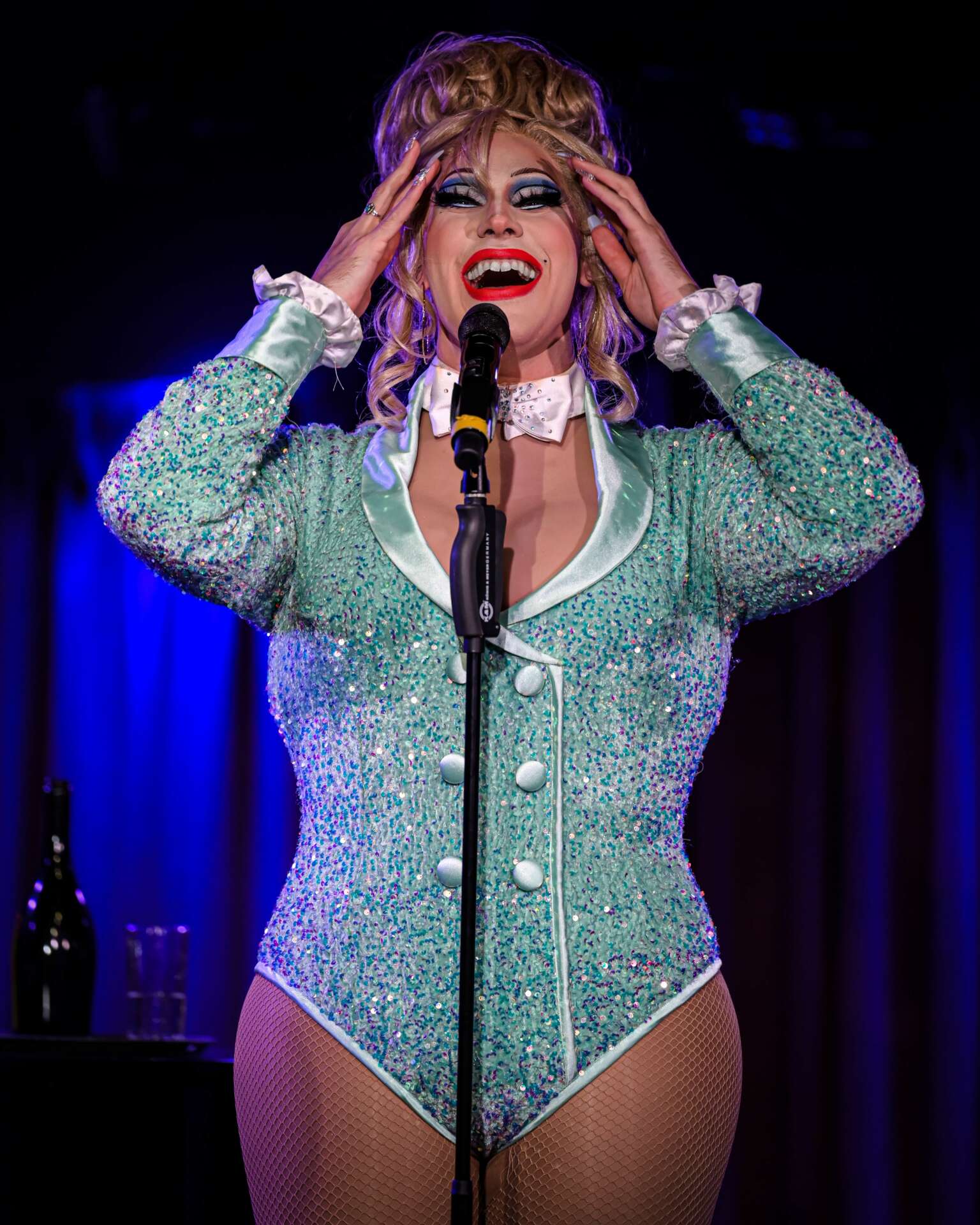
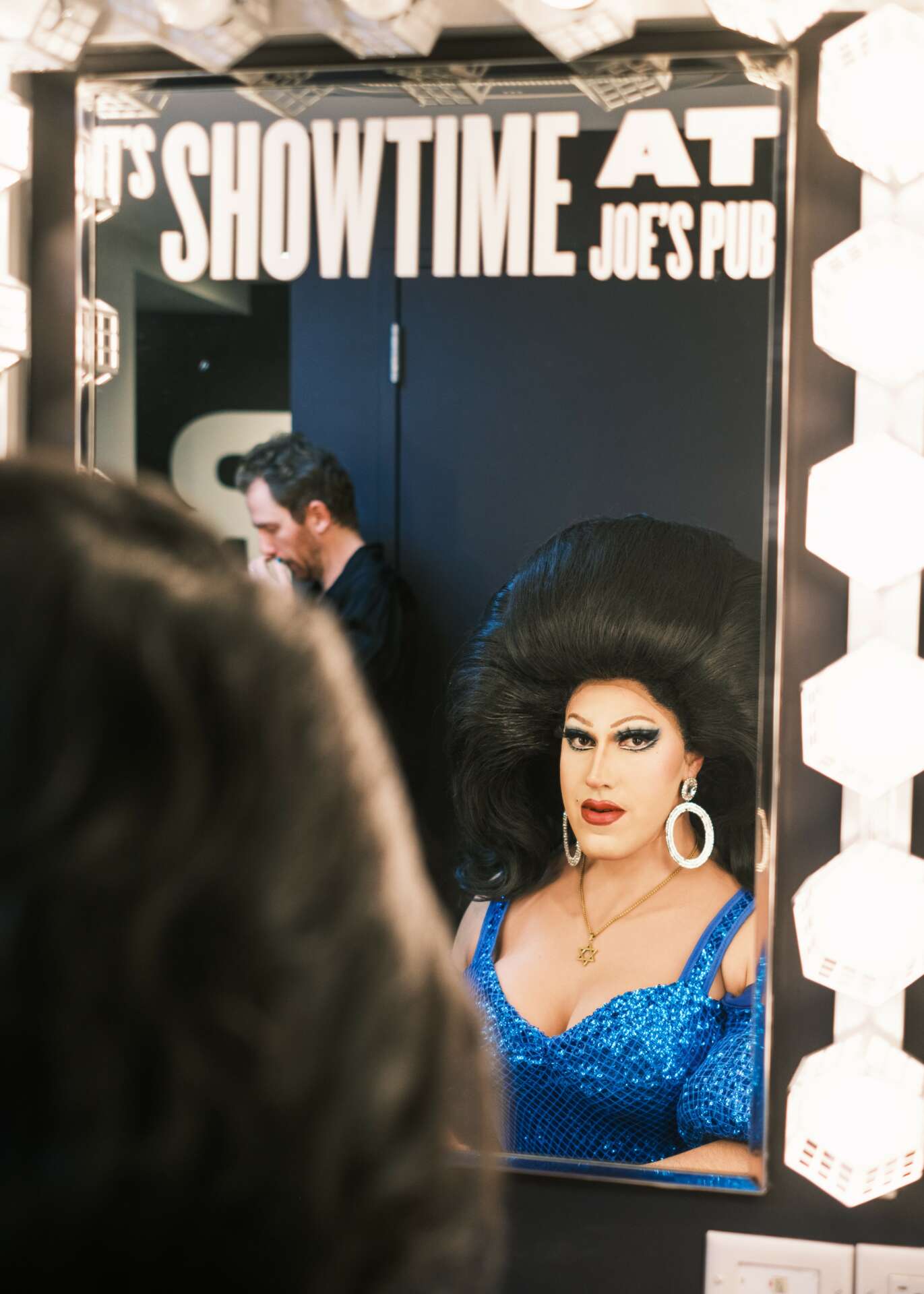
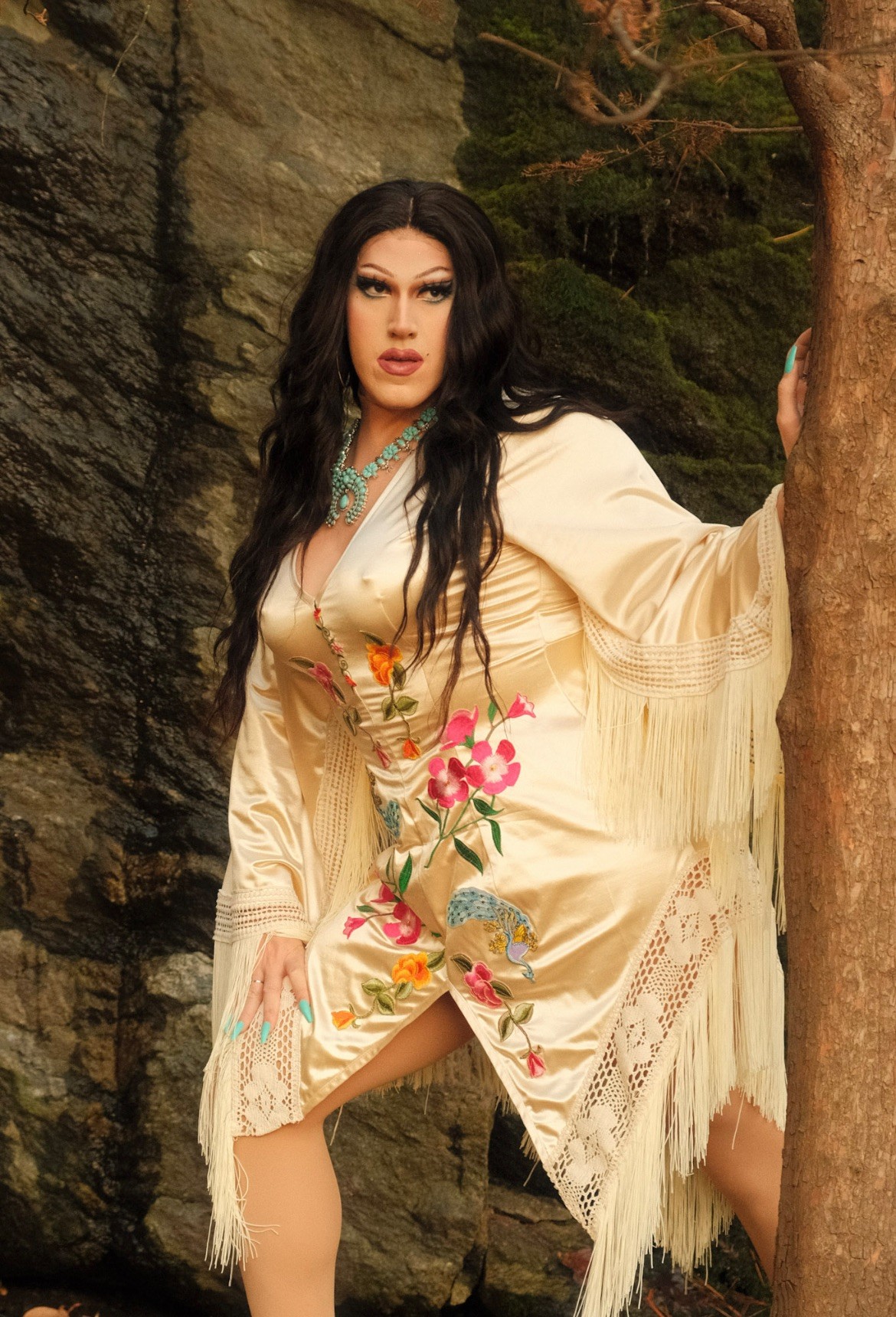
As always, we appreciate you sharing your insights and we’ve got a few more questions for you, but before we get to all of that can you take a minute to introduce yourself and give our readers some of your back background and context?
KIKI BALL-CHANGE is a boisterous, bawdy broad with all the pizzazz you’d expect from a Broadway show with an off-off-Broadway budget. Since bursting onto the scene in 2017, Kiki has proven herself to be a natural-born entertainer, boasting over two decades of musical theatre training and more than five years of professional drag experience. Her magnetic stage presence and captivating performances have earned her widespread acclaim from the largest of stages, to the smallest of screens.
Known for her quick witted humor and irresistible charm, Kiki’s shows keep audiences coming back for more. With a knack for creating and lipsyncing to unique mixes, she seamlessly blends comedy, storytelling, and perfectly matched music, for an unforgettable performance.
Throughout her half-a-decade-long drag career, Kiki’s had the pleasure of collaborating with renowned actors, comedians, and fellow drag performers. She has performed in clubs across the country, worked with and represented national brands, and delighted audiences around the world on multiple television appearances.
A local cabaret sensation in New York City, Kiki’s cabarets have garnered glowing reviews and earned two prestigious GLAM Awards for the hilarious one-woman shows. In her cabarets, she expertly writes and performs original parody songs, set to beloved musical theatre tunes and strings them together with personal stories from her own life and experiences. By breaking the fourth wall and connecting with audiences on a deeply personal level, she combines a delightful blend of humor, vulnerability, and creativity, that sets her apart as a true powerhouse in the drag industry.
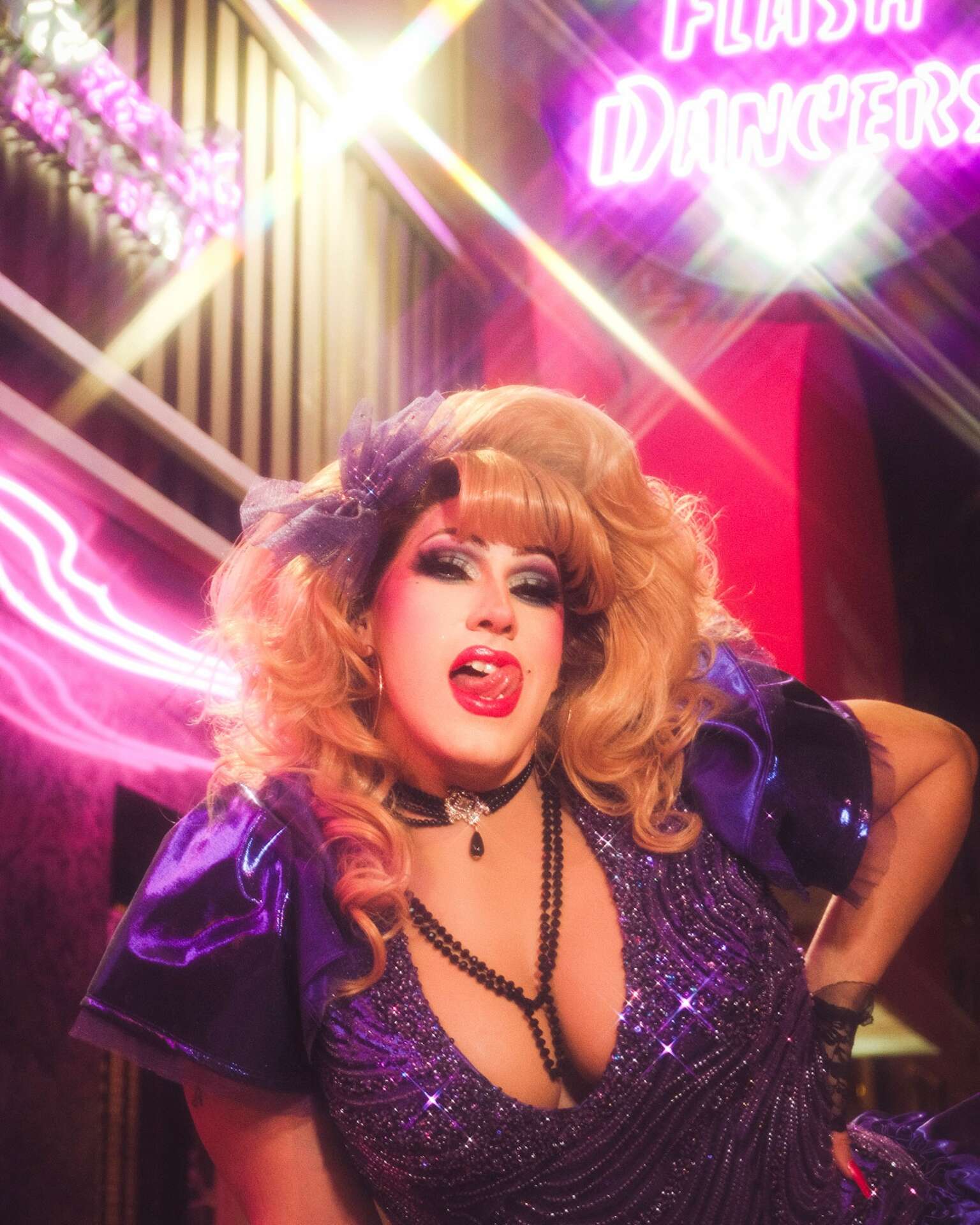
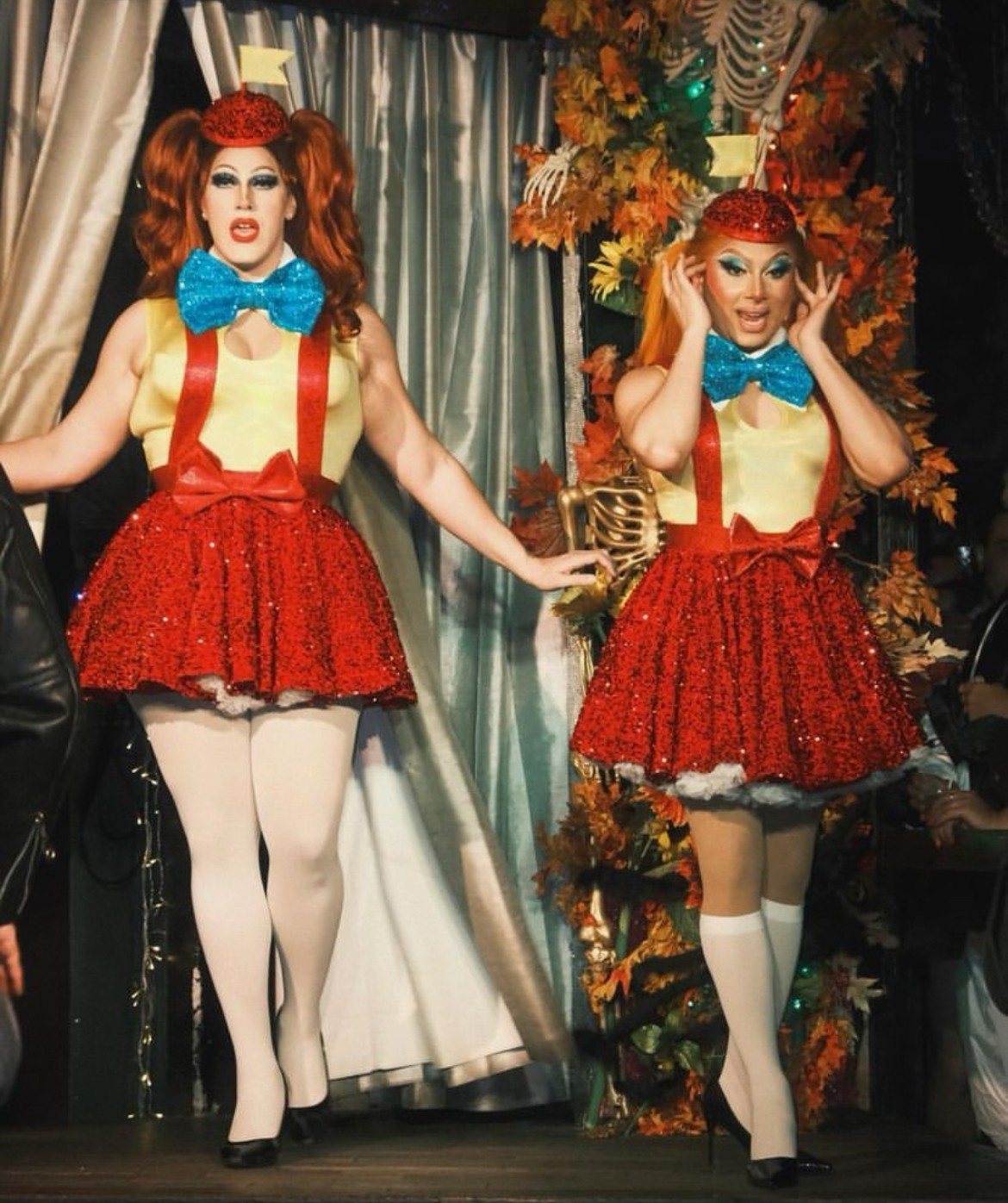
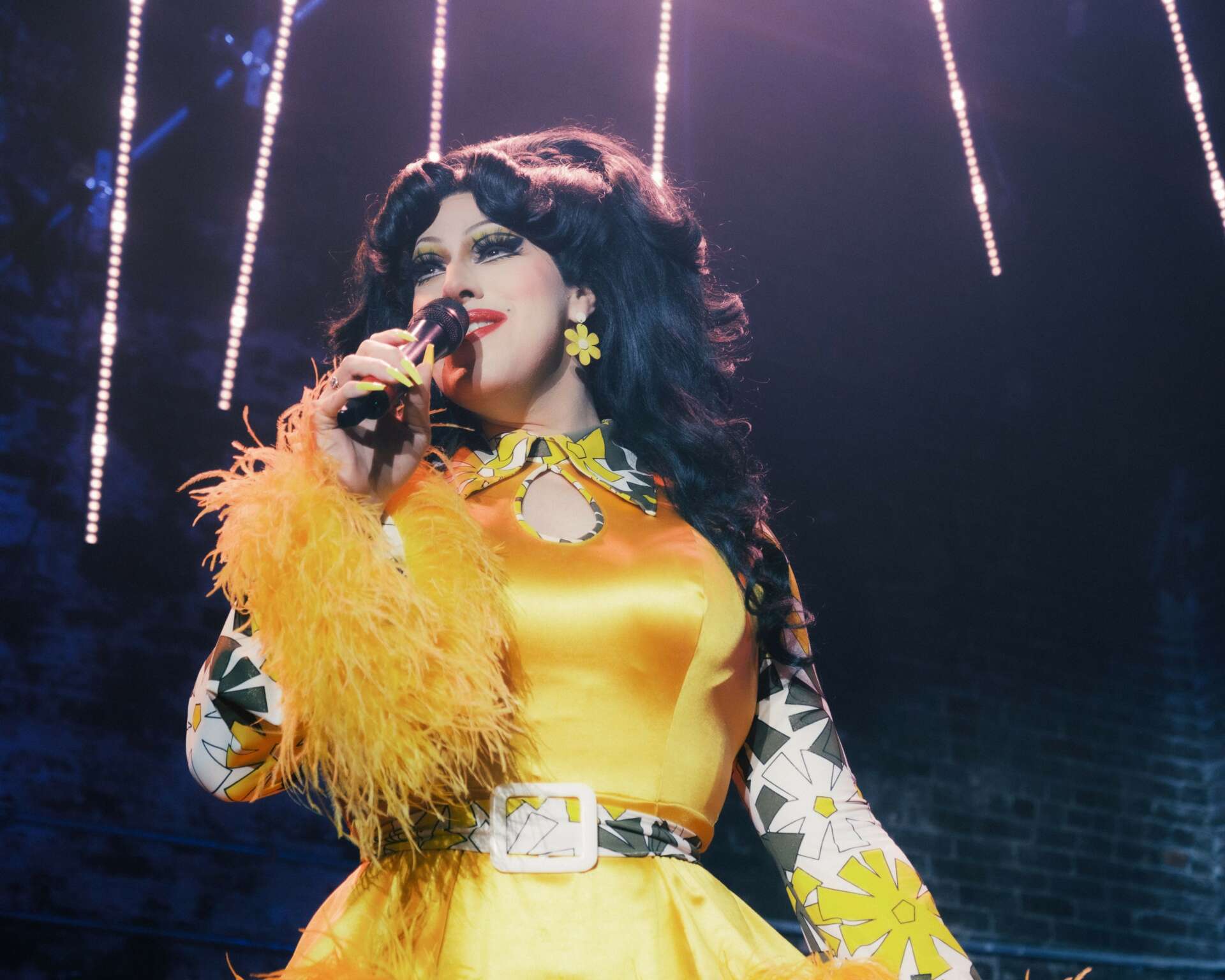
What can society do to ensure an environment that’s helpful to artists and creatives?
I think what society, especially non-creatives, can do to support artists and creatives is financially. That means going to see their shows, buying tickets, buying merchandise, spreading the word to their friends. In the age of social media, many times, people with less social media followers will get passed up on a gig for someone with more, despite their level of talent. Similarly, when artists, like photographers try to share their art on social media, the algorithm hides their content from being seen and shared.
If you have the finances to support an artist, do so. The Renaissance got so much wonderful art because there were patrons who supported the arts. They hired architects, artists, sculptors, and more to create beautiful pieces of art.
I think nowadays, arts and culture are seen as unimportant. It’s especially scary because I believe the world needs art more than ever right now. Art reflects the times we are living in. A world without art is like a world without nature. It’s not beautiful anymore when you strip all of the art and culture away from it.
As a society, we need to recognize the immense importance of art in our culture.
How about pivoting – can you share the story of a time you’ve had to pivot?
I moved to NYC as an actor. I had a little bit of drag experience, but my goal as an actor was to work regionally, in national tours, and hopefully, on Broadway. I did the normal NYC actor thing, you move to New York, get jobs working in restaurants and temp jobs in offices, and audition when you can. After about two years of that, I realized that my drag was getting more and more prominent in my life.
I was experiencing more joy as a drag queen than almost any time I was at an audition at 8am or serving strangers food in midtown restaurants. Likewise, the money that started to come in from working more regularly as a drag queen could support me in the same ways that working in a restaurant could.
I was working a really terrible serving job at a restaurant, and after a truly disastrous shift, decided that I could make a decision to pursue drag full-time. I knew it would be incredibly difficult to sustain, but I knew my drive to make it work was greater than my drive to keep working in restaurants the rest of my life. It was one of the best decisions I’ve ever made.
I still audition every now and then, but most of the roles I audition for now have drag at the forefront of my mind.
Contact Info:
- Website: www.kikiballchange.com
- Instagram: @kikiballchange
- Twitter: @kikiballchange
- Youtube: https://www.youtube.com/channel/UCdkUxIAXUsoVbcKcapAh-Qg
- Other: TikTok: @kikiballchange
Image Credits
Anthony Cunanan, John Lagucki, Austin Ruffer, Thomas Mundell


